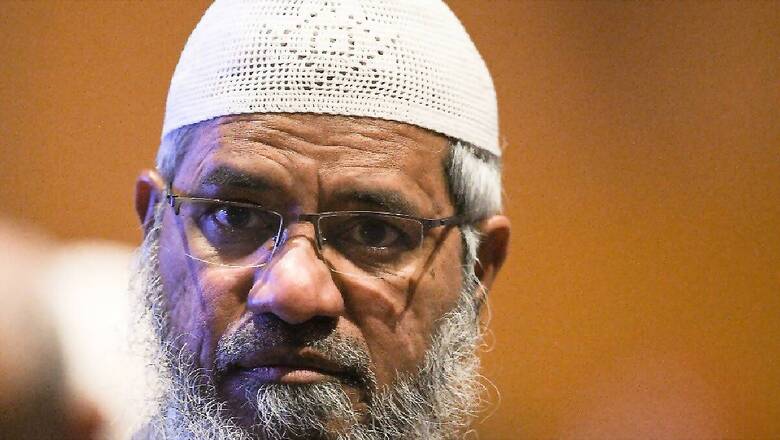
views
In the contemporary media landscape, televangelism—once primarily associated with Christian preachers in the West—has expanded into the Muslim world, creating a powerful platform for religious leaders to reach millions of viewers. Islamic televangelism has become an influential tool in spreading Islamic teachings, fostering religious identity, and shaping public discourse on faith and morality. As television and online streaming platforms have grown more accessible, Muslim televangelists have seized the opportunity to blend traditional religious messages with modern communication methods, thereby influencing audiences on a wide range of issues.
The rise of Islamic televangelism can be traced back to the broader global trend of religious broadcasting in the late 20th century. Muslim preachers, recognising the potential of media to reach the masses, began to utilise television and radio in predominantly Muslim-majority countries. This trend accelerated with the proliferation of satellite channels in the 1990s, which allowed Muslim televangelists to reach a transnational audience across the Middle East, South Asia, and parts of Africa and Europe.
One of the early and influential figures in this movement was Amr Khaled, an Egyptian preacher who gained widespread popularity in the early 2000s. Khaled’s approach, characterised by his conversational tone, relatable storytelling, and focus on personal and moral development, appealed especially to the urban middle class. Unlike traditional clerics who often employed formal or scholarly tones, Khaled’s style was more accessible, allowing him to connect with a younger, educated, and more media-savvy audience.
Muslim televangelists, much like their Christian counterparts, blend religious teachings with messages of self-help, spiritual growth, and moral guidance. However, their approach often carries distinct characteristics. One key aspect is their focus on relatability and modernity. Many Muslim televangelists strive to make Islamic teachings relevant to contemporary life, addressing topics such as work-life balance, family dynamics, and personal success. Framing these issues within an Islamic context helps make their messages practical and resonates with viewers seeking religious guidance that aligns with modern challenges.
Another defining feature is simplified theology. Muslim televangelists often avoid complex theological debates, instead presenting distilled versions of Islamic teachings. This simplified approach caters to a broad audience, including those without extensive religious education, allowing them to engage with the faith in a way that is accessible and relatable. This method helps avoid alienating those who might feel disconnected from traditional religious instruction.
Emotional appeal is another significant element. Muslim televangelists frequently use personal stories and emotional narratives to connect with their audiences. By sharing accounts of faith, struggles, and redemption, they evoke an emotional response, drawing viewers into a closer, more personal relationship with their faith.
Recognising shifts in Muslim demographics, many televangelists have adopted a youth-oriented approach. They often target younger audiences who may feel distanced from traditional religious practices, addressing issues relevant to them such as social media use, relationships, and career aspirations, while encouraging them to stay grounded in Islamic values.
Finally, media savviness is a crucial characteristic. Modern Muslim televangelists leverage multiple platforms—television, social media, and online video platforms like YouTube—to engage with a global audience. This multi-pronged approach allows them to remain relevant in an increasingly interconnected world and to reach a diverse, tech-savvy viewership.
In some cases, televangelists have taken on activist roles, advocating for social reforms or addressing controversial topics like women’s rights, economic inequality, and political corruption. While some televangelists have promoted more conservative interpretations of Islam, others have advocated for progressive reforms, particularly in areas such as education, women’s empowerment, and charity work. This diversity of voices within Muslim televangelism reflects the broader diversity of thought within the global Muslim community.
However, the influence of televangelists is not without controversy. Critics argue that some Muslim televangelists oversimplify religious teachings and reduce faith to emotional rhetoric or personal success formulas, rather than promoting deep engagement with Islamic scholarship. Others warn that certain televangelists spread conservative or even radical ideologies, especially in regions with political instability. The reach and impact of these televangelists can make it difficult to regulate the content of their messages, particularly when broadcast across international borders.
While Muslim televangelism has proven effective in reaching wide audiences, it faces several challenges and criticisms. One key concern is the commercialisation of faith. Like Christian televangelism, Muslim televangelism is sometimes criticised for turning religion into a commercial venture. The reliance on advertising, sponsorships, and donations can give the impression that spiritual guidance is being commodified, transforming it into a for-profit enterprise rather than a purely religious or charitable mission.
Another issue is the oversimplification of complex issues. Muslim televangelists often focus on broad, feel-good messages that may overlook the intricacies of Islamic jurisprudence, theology, or social matters. This simplification, while making religious teachings more accessible, can dilute the intellectual depth traditionally associated with Islamic scholarship, potentially leaving out critical aspects of religious understanding.
There is also concern over the potential for radicalisation. In some instances, Muslim televangelists have been accused of promoting extremist views, particularly when their broadcasts are unregulated. This is especially troubling in regions where radical ideologies are already prevalent, raising fears that televangelism could amplify these ideas without proper oversight.
Finally, clerical opposition poses a significant challenge. Traditional Islamic scholars and clerics may view televangelists with scepticism, criticising them for lacking formal religious training or for presenting oversimplified and popularised versions of Islam. This tension reflects broader debates about religious authority in the modern era, as media-savvy televangelists challenge the more traditional forms of religious leadership.
Some notable Islamic televangelists have been:
Ahmed Deedat (South Africa): A prominent Islamic preacher known for his work in comparative religion, particularly his debates with Christian missionaries. Although he passed away in 2005, his lectures and debates, available through various media platforms, continue to be influential. He readied the global Muslim community for Zakir Naik, the fugitive wanted in India and currently on a state visit to Pakistan.
Zakir Naik (India): A controversial figure and a well-known Islamic preacher and televangelist who focuses on comparative religion and debates between Islam and other faiths. He is the founder of the Islamic Research Foundation and its channel Peace TV, which broadcasts globally. Naik has a large following in South Asia and among Muslims worldwide. His confrontational style in interfaith debates has sparked both admiration and criticism. He is banned in several countries, including India, due to accusations of promoting radicalism.
Tariq Jameel (Pakistan): A member of the Tablighi Jamaat movement, his speeches focus on self-reformation, spirituality, and adherence to Islamic principles. His message is often about fostering unity within the Muslim Ummah and bringing people back to religious practices. Jameel’s lectures, broadcasted via television and online platforms, attract millions of followers, especially in Pakistan and South Asia. He has been credited with influencing both everyday Muslims and public figures, including celebrities.
Islamic televangelism is here to stay. Authorities will have to come up with out-of-the-box solutions to counter the radical effects of Muslim preachers with a wide audience, who have no control over how their followers may interpret their teachings and act in real life.
The author is a writer and an educationist from Srinagar. Views expressed in the above piece are personal and solely those of the author. They do not necessarily reflect News18’s views.



















Comments
0 comment